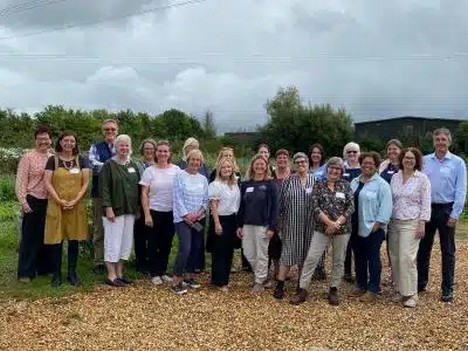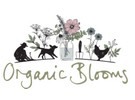Sustainability has always been at the heart of everything Organic Blooms does. From supporting their trainees to build sustainable futures for themselves to certified organic regenerative farming practices, carefully examining their supply and distribution chains, and the provenance of the seed, bulbs, and materials they use, their ethics are what has made them stand out.

While standing out from the crowd is nice for a while, really, they’d love the crowd to step up and join them. Globally, floriculture is incredibly damaging to people and the environment. The pesticides, fungicides, fertilizers, preservatives, dyes, and myriad other chemicals used in growing cut flowers on an industrial scale are nothing short of disastrous to the health of flower workers and ecosystems. The vast amount of energy that goes into heating and lighting polytunnels & glasshouses and refrigerating and transporting flowers around the planet; the wide scale overuse and pollution of local water supplies; the excessive use of plastics; the wiping out of wildlife habitats to make room for flower farms; the poor employment practices flower farm workers are subjected to; and the health and environmental risks posed by floral foam: these are all things they’d love everyone to consider when buying what is, essentially, a luxury product.
Thankfully, the sustainable flower movement is gathering pace – with the caveat that there is currently a lot of greenwash applied to the flower industry. At Organic Blooms, they were recently thrilled to host some of the most influential and knowledgeable movers and shakers from across the industry for a conference about promoting sustainability within the UK grower-florist sector. The event was led by Professor David Bek from the University of Coventry, Dr Jill Timms from the University of Surrey, and ethical grower-florist Angela Coulton from Petal and Twig.
After presenting research and data about the current position of ethical growth and floristry, a series of lively group discussions identified values and actions that we can all use to guide our businesses to become more ethical and to encourage the wider industry to do the same. Ultimately, having a tool that cuts through the greenwash and supports growers and florists to make their businesses ethical would make truly sustainable flowers much more widely accessible to many more people.
The conference felt like a very positive step in the right direction
For more information:
Organic Blooms
organicblooms.co.uk
